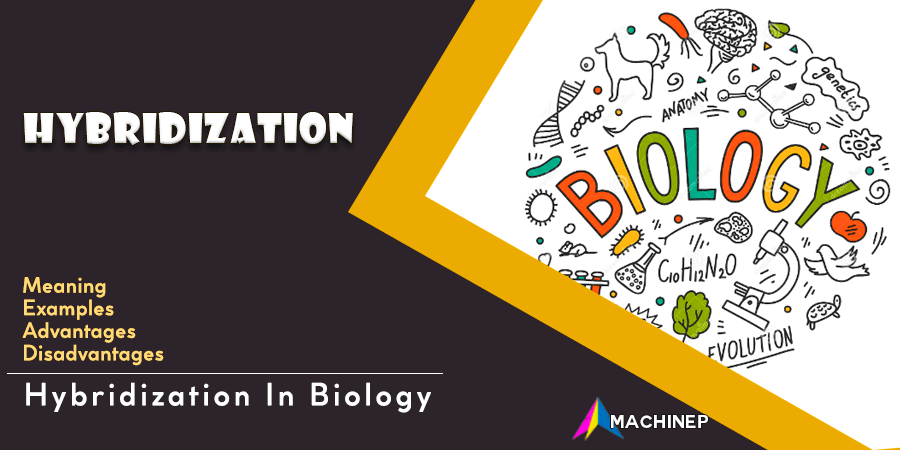Meaning of Hybridization in Biology
Hybridization in biology is simply defined as the interbreeding between two unrelated species to create a hybrid that may be created for commercial use.
Hybridization, therefore, entails the process of mating two organisms belonging to two different species to create an organism possessing the qualities of both organisms.
Comprehensive Definitions of Hybridization
The term “hybridization” is prone to ambiguity. The concept of a cross between individuals from two distinct groups is superficially simple, but uncertainty arises in defining distinct groups. Often, hybridization is only considered between species, but “from a genetic point of view, interspecific hybridization is only a special case of much more widespread phenomenon.”
This is apparent, for instance, in the breeding of crops, where hybrid traits associated with heterosis, transgressive segregation, and introgression are utilized in both the intraspecific hybridization of maize varieties and the interspecific hybridization of wheat and cotton species to form allopolyploids.
In other words, hybridization is widely defined as a cross between individuals from separate populations that differ in one or more heritable traits.
In reproductive biology, hybridization means the act or process of mating organisms of different varieties or species to create a hybrid. It’s something like cross-breeding. Tigers and mules are examples of animal hybrids.
In the molecular biology process of forming a double-stranded nucleic acid from joining two complementary strands of DNA(or RNA) (as in nucleic acid hybridization).
9 Top Advantages of Hybridization
- Two species combine to form the best of the organism.
- Hybrid plants are physically uniform. This is mainly helpful for farmers who harvest with machines, but it is usually not a big deal for small greenhouse gardeners.
- Hybridization help in getting different species of animals.
- They pass along favorable traits and prolong the survival of threatened or endangered species.
- They (hybrids) often show greater vigor and faster growth
- Hybrids can have up to 25 (twenty-five) percent higher yields.
- They result in the formation of organisms that possess various qualities such as disease resistance, stress resistance, and so on.
- In animals such as humans, hybridization help in the detection of the presence of amplified genes in cancer and to map out their location.
- Hybridization creates room for a better adaptation of new species.
5 Top Disadvantages of Hybridization
- The process of hybridization is quite expensive, costing up to five times the value of the normal process.
- They suffer more than the normal plants if not provided with the normal requirements.
- They have difficulty finding mates and successfully breeding.
- It can lead to the extinction of some species. For example, a Blue-winged Warbler and a Golden-winged warbler mated and created a new type of bird. The new bird was able to mate with each other and the parental types. There were no signs that the two species were fusing back into one, so the Blue-winged warbler is replacing the Golden-winged warbler because the other type of bird or the Blue-winged warbler continued mating with other Blue-winged warbler and out-competing the Golden-winged warbler.
- High risk of uncertainty: You may end up losing the original hybrids.





Saved me tons of time. Thumbs up
Thanks for providing a straightforward answer.
I wish to say that this article is amazing, great written, and include approximately all important infos. I’d like to see more posts like this.
Nice points
Extremely useful
Pleasant content
“Excellent article. I absolutely love this website. Keep writing!
This is some helpful material.
Thanks for going straight to the point.. You just won a new fan.
i love this wonderful post
Nicely written